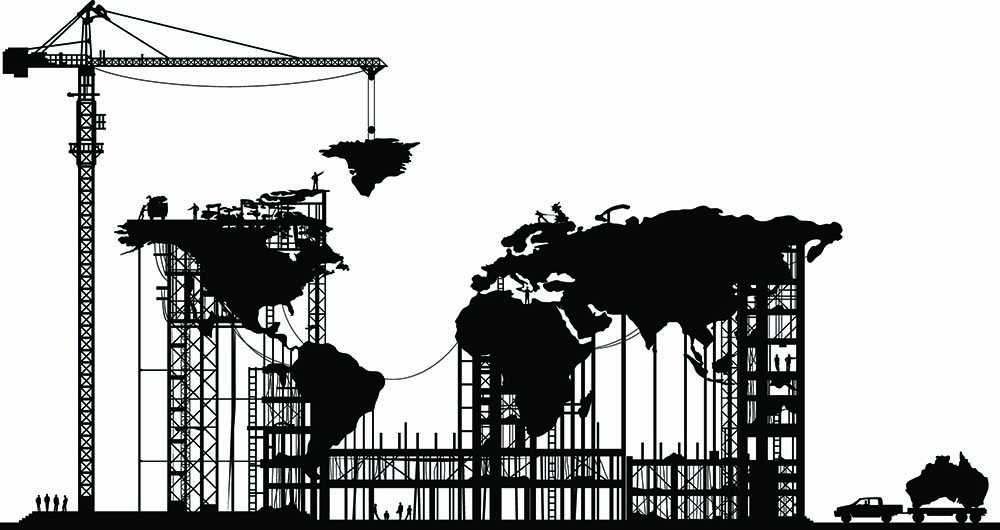
Tectonic shifts in the international landscape have unsettled the post-Cold War international order in recent years. In the future, the strategic choices of major powers will determine whether the existing order will regain vitality or collapse.
The end of the Cold War marked the end of the rivalry between the United States and the Soviet Union for global dominance. In the years since, the accelerated pace of globalization, multipolarization, and technological advancement have shaped the international order in many important ways:
• Relations between major countries are less defined by hostility and confrontation, as they were in the Cold War era. Cooperation and engagement are of primary importance, while constraint and containment take a secondary position.
• As the world’s sole superpower, the United States holds a dominant position in world affairs, but it’s not in a position to exert influence any way it wishes. Its war efforts in the name of human rights have run into significant obstacles.
• Multilateralism has gained traction. The central role of the United Nations has grown. And the establishment and development of multilateral economic and trade cooperation organizations, free trade areas and organizations for multilateral security dialogue and cooperation have played a vital role in world peace and development.
• The turbocharged development of science and technology has driven the socioeconomic development of many countries and brought them closer.
These factors have been around for more than 20 years. Throughout that period, the international landscape dominated by the United States, coupled with the rise of multiple other powers, has seen peace and development as the defining trend of the times.
New order under attack
Despite of their positive aspects, globalization and technological advancement have brought increasingly pronounced negative impacts, posing challenges to the post-Cold War world order.
First of all, disparities in development between and within countries, together with the worsening problems of immigration, infectious diseases, transnational crime and the proliferation of weapons of mass destruction, have spurred the emergence of anti-globalization sentiment, populism and trade protectionism in some countries.
Second, the collective rise of developing countries — especially the significant narrowing of the power gap between China and the United States — has led to growing anxiety in the U.S. and other Western countries. This, in turn, has given rise to geopolitical rivalries between major countries.
Third, rapid IT development has brought about uncertainties and challenges. The digital divide, cyberwarfare, information warfare, space warfare and ethical concerns regarding the weaponization of artificial intelligence have become prominent topics in the international arena.
The fundamental reason for these phenomena lies in the failure of global, regional and national governance — as well as international regulations and systems — to keep up with the tremendous changes introduced by globalization, multi-polarization and technological development. As a result, friction, conflict and malicious competition have intensified. China-U.S. strategic competition has persisted for years. The Russia-Ukraine war and the Palestinian-Israeli conflict drag on. And a Cold War dynamic has resurfaced in Europe, with the potential to spread to East Asia.
A research report by the British Institute for International Strategic Studies found that 2023 had the most international conflicts and wars in 30 years. This fact has sparked concerns about whether confrontation, conflict and war will continue to increase and trigger a war, or even worse a nuclear war, between major countries.
China’s vision
In response to recent severe challenges and risks, Chinese leaders have undertaken a series of initiatives — including the Global Development Initiative, the Global Security Initiative and the Global Civilization Initiative — all designed to support the idea of building a community with a shared future for mankind.
These initiatives resonate with and enhance the strategic decisions China has made in the post- Cold War era. Specifically, China adheres to a path of peaceful development and remains committed to world peace. It safeguards sovereignty, territorial integrity and international fairness and justice in accordance with international law and recognized norms governing international relations. It respects the diversity of civilization and advocates mutual learning. It fosters cooperation-oriented, stable and balanced relations with other major countries. And, guided by a new security concept and the principles of multi-pluralization, it has adopted a series of principles and policies fostering common development and win-win outcomes for all countries.
China’s role defined
First, China is a beneficiary of the existing international order. Its integration into that order, especially in the post-Cold War period, has facilitated its growth.
Second, China is a defender of the existing order. It upholds the United Nations-centered system and the order based on international law. It adheres to international treaties, conventions and declarations reached in accordance with the purposes and principles of the United Nations Charter.
Third, China is a reformer. Since the end of the Cold War, the international order dominated by the West has seen significant improvements, but there are still areas of unfairness that require further reform. China supports the reform of organizations such as the United Nations and calls on U.S.-led military alliances to abandon their Cold War mentality and transform themselves as soon as possible.
Fourth, China is a builder. In the face of new problems and challenges brought about by globalization, multipolarization, and emerging technologies, China stands ready to cooperate with the global community to formulate new laws and regulations to adapt to evolving circumstances.
In short, the Western accusation that China is the biggest challenge to the existing international order doesn’t hold water. If the U.S.-led Western world aims to maintain the existing order and contribute to world peace and development, it should reflect that through its actions. The only way forward is active and candid dialogue and cooperation with China on issues regarding the international order.